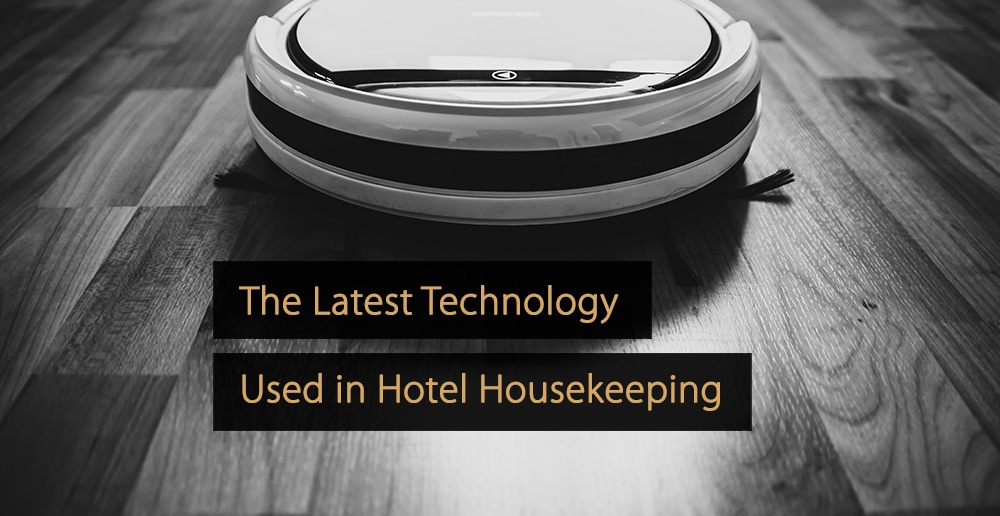Housekeeping Department in Hotel
The housekeeping department in a hotel is responsible for maintaining cleanliness, orderliness, and hygiene in all hotel areas, especially guest rooms. It’s crucial for ensuring guest satisfaction, safety, and comfort, directly impacting the hotel’s reputation and return business. This department is vital to the overall guest experience and operational success.
Key Takeaways
- Elevating Guest Satisfaction: Cleanliness directly influences guests’ comfort and opinions.
- Ensuring Hotel Practices Are Enforced: Upholds standards and procedures for consistent service.
- A Crucial Point of Contact: Acts as a key interface between the hotel and its guests.
- Keeping Public and Communal Areas Clean: Vital for creating a positive first impression and atmosphere.
- Maintaining a Competitive Edge: High cleanliness standards differentiate the hotel from competitors.
- Resolving Complaints: Efficiently addresses and rectifies guest issues to improve experience.
- Preventing Problems: Proactive measures reduce incidents and ensure smooth operations.
- Use Digital Checklists: Enhances efficiency and accuracy in room and area inspections.
- Plan In Advance for Housekeeping Operations: Organized approaches improve workflow and staff performance.
Table of Contents:
- How is the Hotel Industry Defined?
- What is the Housekeeping Department in Hotel?
- What Are the Duties of the Room Attendant?
- Why is the Housekeeping Department in Hotel Businesses Important?
- Elevating Guest Satisfaction in Hotel Rooms
- Ensuring Hotel Practices Are Enforced
- A Crucial Point of Contact for the Guests
- Keeping Public and Communal Areas Clean
- Maintaining a Competitive Edge
- Housekeeping Department in Hotel Businesses Resolves Complaints
- Preventing Problems From Occurring in the First Place
- Using Hotel PMS for Housekeeping
- 3 Housekeeping Department in Hotel Cleaning Tips for Ultimate Guest Satisfaction
- Technology Used by the Housekeeping Department in Hotel Properties
- The Role of the Hotel Front Office
Introduction
The housekeeping department in hotel businesses is one of the most important areas to focus on because it can directly impact customer satisfaction. In this article, you can learn about the impact housekeeping has on successful operations and access some helpful tips to optimize your housekeeping efforts.
How is the Hotel Industry Defined?
Before exploring the value of the housekeeping department in hotel operations, it is useful to establish precisely what the hotel industry is and how it can be defined. According to most definitions, the hotel industry describes the sector of businesses providing temporary, short-term lodgings to paying guests.
Based on this definition, the hotel industry is broad, with a hotel meaning a conventional hotel or any similar business type, such as a motel, resort, holiday cottage, hostel, serviced apartment, bed and breakfast, or inn. It can be viewed as the hospitality industry’s section concerned with lodgings and accommodation services.
In the “Hotel Industry: Everything You Need to Know About Hotels!” post, you can explore the definition further, gain a deeper and more nuanced understanding of the industry and learn about different accommodation types.
What is the Housekeeping Department in Hotel?
Housekeeping is one of the major hotel departments and can be described as the department responsible for keeping a hotel clean, tidy, presentable, and comfortable. It plays a major role in maintaining guest satisfaction. Generally, having a dedicated housekeeping department in hotel and guest accommodation businesses is standard practice.
Typical housekeeping duties include changing sheets and towels, cleaning rooms and surfaces, replenishing items in hotel rooms, removing litter, carrying out laundry duties, and maintaining orderliness within the property. The housekeeping team is largely responsible for ensuring hygienic, pleasant, and safe hotels.
In the “Hotel Housekeeping Guide: 11 Tips & Tricks to Clean Your Hotel” article, you will learn more about housekeeping, explore housekeeping strategies and access valuable tips.
What Are the Duties of the Room Attendant?
Room attendants form a crucial part of the housekeeping department in hotels. They are responsible for cleaning rooms, changing sheets and towels, and ensuring rooms are tidy, clean, and fit to use.
However, housekeeping duties for a room attendant may also extend into areas connected with quality control, hotel maintenance, and customer service. For instance, a room attendant may be asked to check equipment in rooms and assess the current state of furniture and other in-room items, while they will also serve as hotel ambassadors.
In the “Room Attendant Guide; Meaning, Job Description, Duties & Technology” article, you can explore the duties of a room attendant in greater depth and gain a more rounded knowledge of what the role entails.
Video: Housekeeping Duties
Why is the Housekeeping Department in Hotel Businesses Important?
The housekeeping department in hotel properties is one of the most important areas for business operations. In the sections below, you can find out exactly why this department is so valuable.
Elevating Guest Satisfaction in Hotel Rooms
Perhaps the most obvious reason the housekeeping department in hotel properties is so critical to operations is that it can directly impact guest satisfaction levels. For many guests, the quality and cleanliness of a hotel room will make or break their experience, and housekeeping teams are largely responsible for this.
This means that a high-performing housekeeping department can help to boost your hotel’s reputation and standing with guests. At the same time, poor performance in this area can have serious consequences, including damage to your reputation and fewer referrals from guests. Essentially, the better your housekeeping, the greater your chances of success.
Ensuring Hotel Practices Are Enforced
Hotel management can create policies, procedures, and best practices. Still, these need to be enforced, and the housekeeping department in hotel businesses will often have a crucial role. For instance, the standards set out for guest rooms need to be upheld by housekeeping staff, and room inspections can help to identify areas of concern.
Housekeeping staff in the hotel industry must have good attention to detail. For example, many hotels will have specific techniques they want staff to use for preparing a bed in a guest room. On top of this, there is a customer-facing component to the job, and it may be necessary for housekeeping staff to explain standards and practices to guests.
A Crucial Point of Contact for the Guests
Guests are likely to have interactions with housekeeping staff throughout their stay. Examples of this could include room cleaning during a guest’s stay, or guests requesting an additional pillow for their bed. This means that the housekeeping department in hotel environments is an important point of contact.
In many instances, housekeeping staff are actually among the staff that are interacted with the most. This can also often include early interactions, which can help to form the guest’s first impressions of your hotel. For these reasons, your hotel budget should extend far enough to provide customer service training for housekeeping employees.
Keeping Public and Communal Areas Clean
For a typical housekeeping department in a hotel, the guest room cleaning component will take up a lot of time. Still, housekeeping staff are also largely responsible for ensuring the hotel’s public and communal areas are clean and tidy too. Again, this is important for meeting guest expectations and achieving high satisfaction.
This particular area of focus is also important for hotels, because it can help to minimize any safety issues in those areas, such as untidy areas providing a tripping hazard, or unclean areas providing a hygiene risk. Meeting rooms, hallways, the lobby, leisure facilities, elevators, and stairways must be kept clean and tidy.
Maintaining a Competitive Edge
The hotel industry is extremely competitive, and customers choosing to book one hotel over another can come down to some of the smallest details. With this in mind, the housekeeping department in hotel businesses is essential for achieving and maintaining a competitive edge and attracting more bookings.
When your housekeeping team is firing on all cylinders, you are likely to attract more positive reviews, which can lead to an increase in bookings and referrals. Conversely, if your housekeeping team starts to lower its standards or if it lacks attention to detail, you can start to find your competitive edge will disappear.
Housekeeping Department in Hotel Businesses Resolves Complaints
Every hotel will experience problems, whether issues have been overlooked, or staff have failed to perform their duties to the necessary standard. Regardless of the cause, the housekeeping department resolves many complaints. This is another reason why it should be an area of priority for any hotel owner or manager.
Whether the issue is an unclean room, an item left behind by a previous guest, or a laundry issue, the responsibility will likely fall to your housekeeping team. A sensible hotel business will invest in this team and ensure they possess the necessary customer service skills to handle complaints with professionalism, humility, and rationality.
Preventing Problems From Occurring in the First Place
Responding well to customer complaints is great, but it is even better if the housekeeping department in hotel properties can prevent issues from ever arising in the first place. A well-trained and well-drilled team can achieve this, saving you a lot of potential headaches in the future.
Developing a robust housekeeping routine can help to prevent issues from being overlooked. A team that knows what to look for in a room, which things to prioritize, and how guests are likely to think can be invaluable. Most guests would prefer never to encounter a problem, so your hotel will benefit from that added level of guest satisfaction.
Using Hotel PMS for Housekeeping
A property management system, or PMS, is one of the most essential examples of hotel technology. While it can be used for many different tasks, it is fair to say that automation, communication, and organization features can be especially beneficial for the housekeeping department in hotel properties.
A property management system can be great for sharing information between departments. For example, if housekeeping staff know how many guests are checking in that day, they can organize their activities to ensure enough time to prepare rooms. A hotel PMS also allows you to organize staff by allocating specific tasks to individuals.
It is possible to find dedicated software solutions for different departments; in some cases, this may be the way to go. However, for many hotels, a comprehensive PMS will result in more seamless operations and allow different departments to work together towards common goals like guest satisfaction and increased revenue.
3 Housekeeping Department in Hotel Cleaning Tips for Ultimate Guest Satisfaction
The following sections will provide you with three hotel cleaning tips that can help the housekeeping department in hotel businesses to achieve peak performance, meet those hotel marketing promises and deliver ultimate guest satisfaction.
1. Keep Your Housekeeping Trolley in Check
A housekeeping trolley ensures the housekeeping department in hotel properties can operate efficiently. It allows housekeeping staff to access all of the tools, equipment, and resources they need to clean and prepare rooms, without having to constantly return to the supply area.
You should always make sure your trolley is adequately stocked, without being over-stocked. Staff should be able to easily move the trolley and safely bring it to a stop. Ensure the trolley is organized properly too, so that dirty laundry does not come into contact with clean sheets or other items.
Video: Multifunction housekeeping carts for hotels!
2. Make Use of Digital Checklists
Checklists are a staple of any good housekeeping department in a hotel or similar property. They allow housekeeping staff to clearly understand what is required and can help prevent any tasks from being overlooked or forgotten. However, there are many benefits to switching to digital checklists over conventional paper-based ones.
A digital checklist can be easily shared with multiple devices, and items can be quickly added to the checklist or removed from it. Checklists can monitor the status of housekeeping tasks in real time, and tasks can easily be reallocated from one staff member to another. As an added bonus, they are also more environmentally friendly too.
3. Plan In Advance for Housekeeping Operations
Planning is the key to success with housekeeping operations. The housekeeping department in hotel businesses is responsible for many different tasks, which means they need to adequately prepare for what is to come.
Consider how many staff must be in for each shift and ensure that supply cupboards are well stocked. It makes sense to plan for unexpected events, such as a major clean-up operation, or a trashed hotel room. Try to consider what will be needed for each shift and then plan for some worst-case scenarios too.
In the “Hotel Room Cleaning Tips for Meeting & Exceeding Guests’ Expectations” article, you can access more hotel room cleaning tips, so that your housekeeping department truly excels.
Technology Used by the Housekeeping Department in Hotel Properties
The housekeeping department in hotel properties can always be assisted by technology. This includes everything from housekeeping software to air purifiers and even some of the most exciting technology, such as robotic vacuum cleaners. Investing in technology can make the housekeeping team’s workload much easier and help keep guests happy.
In the “Housekeeping Technology; The Latest Tech Used in Hotel Housekeeping” post, you will find much more information about the different types of technology used by housekeeping departments and why it is valuable.
The Role of the Hotel Front Office
To achieve success in the hotel industry, the role of the housekeeping department in hotel operations needs to be integrated with the hotel front office. The front office staff is typically responsible for checking in guests, coordinating the guest experience, various administrative tasks, concierge duties, and much more.
In the “Hotel Front Office: Learn About Tasks, Responsibilities, Roles & More” article, you can fully explore the duties of the hotel front office and gain a better understanding of how it may link up with housekeeping.
Housekeeping Department in Hotel FAQs
The housekeeping department in hotel businesses is vital to achieving high levels of customer satisfaction. The knock-on effects are invaluable, boosting your reputation, helping you to attract more customers, increasing your profitability, and even making it easier to secure hotel financing for any planned upgrades or business expansions.
Would you Like to Learn More About Housekeeping?
You might also be interested in the following articles:
- Hotel Housekeeping Guide: 11 Tips & Tricks to Clean Your Hotel
- Housekeeping Duties: 8 Main Responsibilities of a Room Attendant
- Housekeeping Responsibilities: Learn About the Hotel Cleaning Tasks
- Discover The Latest Housekeeping Trends








Leave A Comment